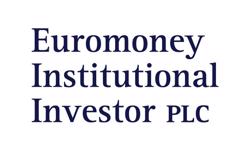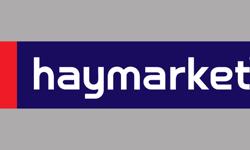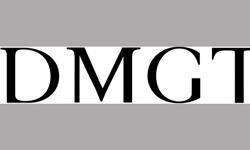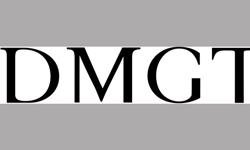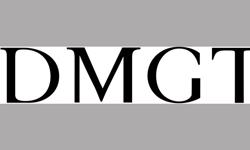According to Euromoney Institutional Investor:
* Revenue increased by 1% to £197.7m
* Underlying revenue excluding event timing differences also increased by 1%
* Adjusted profit before tax unchanged at £53.4m
* Adjusted operating margin reflects higher property and investment costs and impact of Dealogic transaction
* Net debt reduced by £27m to £10.6m
* Interim dividend maintained at 7p a share
* Continued progress rolling out Delphi content platform and good pipeline of new products
Commenting on the first half results, chairman Richard Ensor said: “The first half performance reflects the continuing challenges facing the group’s markets, with improving subscription revenues from our asset management products being offset by the continued pressures on the investment banking sector.
"The second half has started as expected and the trading conditions described in these results are expected to continue during the second half. Our businesses are well placed in their respective markets and we will maintain our strategy of investing in new products, particularly using the Delphi content platform, to accelerate organic growth, and of exploring acquisition opportunities facilitated by our strong balance sheet.”
Highlights
Euromoney Institutional Investor PLC, the international online information and events group, achieved an adjusted profit before tax of £53.4m for the six months to March 31 2015, against £53.4m for the same period in 2014. This is £7.4m more than the £46m guidance given in the pre-close trading update on March 26, 2015, largely as a result of the decision made subsequent to the period end to revise the estimated cost of the group’s long-term incentive plan (CAP). Adjusted diluted earnings a share were 34.1p (2014: 32.0p) and the board has approved an unchanged interim dividend of 7.0p a share to be paid to shareholders on June 19 2015.
Total revenues increased by 1% to £197.7m and underlying revenues excluding event timing differences also increased by 1%. The underlying 2% growth in subscription revenues in the first quarter continued into the second, but the performance of advertising deteriorated. In contrast, excluding timing differences, underlying event revenues performed better in the second quarter, helped by growth from some of our large annual events in the wholesale telecoms and specialist finance markets.
Adjusted operating profits fell by 7%. As expected, the first half adjusted operating margin fell from 28% to 26% reflecting the impact of higher property and investment costs as well as the impact of the loss of contribution from the sale of the Capital DATA joint venture.
The unchanged adjusted profit before tax reflects both a £2.5m credit (2014: £nil) following the change in estimated cost of the CAP and an increase of £1.2m in the underlying share of results in associates following the Dealogic transaction.
The statutory profit before tax of £93.3m was significantly higher than the adjusted profit before tax as a result of gains realised on a number of assets sold during the period, including a profit of £48.4m on the disposal to Dealogic of the group’s interests in its Capital DATA and Capital NET joint ventures, and adjustments to the value of acquisition option commitments, partly offset by goodwill impairment charges.
The increase in adjusted diluted earnings a share reflects the benefit of a lower underlying tax rate and a reduction in the number of shares in issue following last year’s share buy-back.
Net debt at March 31 was £10.6m compared with £37.6m at year end. The decrease in net debt reflects the group’s strong operating cash flows, and proceeds of £19.0m from the sale of properties and other assets partly offset by the payment of deferred acquisition consideration of £11.6m.
As previously highlighted, trading conditions have remained challenging throughout the period, particularly in the investment banking sector which accounts for roughly half the group’s revenues, where activities in the fixed income, currency and commodity markets have remained under pressure. In contrast, the group’s businesses serving the asset management industry have continued to perform well and emerging markets provide opportunities for growth.
On April 9, the company announced the appointment of Andrew Rashbass as executive chairman to succeed Richard Ensor who retires at the end of September 2015. A general meeting will be held on June 1 when shareholder approval will be sought for a revised remuneration policy and the introduction of a new long-term incentive plan to implement the proposed remuneration arrangements for Mr Rashbass. A separate Regulatory News Service announcement and shareholder circular are being issued in connection with this general meeting.
Strategy
Euromoney’s strategy remains the building of a robust and tightly focused global online information business with an emphasis on emerging markets. This strategy is being executed through increasing the proportion of revenues derived from electronic subscription products; investing in technology to drive the online migration of the group’s products as well as developing new electronic information services; building large, must-attend annual events; maintaining products of the highest quality; eliminating products with a low margin or too high a dependence on print advertising; maintaining tight cost control; retaining and fostering an entrepreneurial culture; and using a healthy balance sheet and strong cash flows to fund selective acquisitions and strategic investments.
The group has increased its investment in technology and digital products and accelerated the roll-out of its new Delphi digital platform for authoring, storing and delivering content. Delphi will improve the quality of Euromoney’s existing subscription products and increase the speed to market of new digital information services. BCA Research, the group’s largest business, is already benefiting from its investments in new products on the Delphi platform. These include BCA Analytics, a standalone interactive charting tool, and BCA Edge, a fully integrated online research service. Delphi is also helping BCA accelerate the development of new research services in developed, emerging and frontier markets.
Euromoney is looking to build new products on the Delphi platform across all sectors. Recent examples include TelCap, the group’s wholesale telecoms information business, which is launching Capacity Intelligence, an online subscription-based database providing proprietary information on telecoms companies, M&A activity and partnership data, and HedgeFund Intelligence which is building the world’s most sophisticated relationship database of hedge fund performance.
The group’s largest current investment is the Investor Intelligence Network and the Manager Intelligence Network for Institutional Investor. This is a capital introduction network which brings together online institutional investors and asset managers from around the world in two separate but linked digital communities that allow them to connect, share knowledge and put capital to work. This disruptive technology connects buyers, sellers and intermediaries in the asset management industry. Revenues will come from capital introduction fees, data services, platform fees and, subject to regulatory approval being obtained, the ability to charge basis points on capital placed.
Euromoney also continues to invest in its emerging market businesses. A good example is CEIC Data, the provider of the most expansive and accurate macro-economic data on developing economies around the world. It is launching an online China Discovery demographic product which provides long-term actionable insights on China’s markets by using detailed Chinese macroeconomic data, demographic information and proprietary demographic forecasts. In addition, CEIC Data is launching an ASEAN Premium database which will provide the most accurate and reliable macro-economic data and consensus forecast reports covering the ASEAN countries.
Events are a major element of the group’s growth strategy. It aims to run leading, must-attend, annual events across its sectors, and continues to launch new events. As part of its strategy to build on its strength in the global commodities sector, in July 2014 the group acquired Investing in African Mining Indaba (“Mining Indaba”), the largest mining event in emerging markets and the world’s largest investment in mining event. Mining Indaba was run for the first time under the group’s ownership in Cape Town in February 2015, and leveraged its strong links to institutional investors and governments to enhance the investor content and networking opportunities which have been at the heart of Mining Indaba’s success. The event achieved revenues of £9.2m and attracted more than 6500 attendees and 400 exhibitors and sponsors.
Acquisitions remain integral to the group’s growth strategy. In addition to the Mining Indaba deal, in December last year the group invested alongside the Carlyle Group to acquire Dealogic Holdings plc (“Dealogic”). This investment in 15.5% of Dealogic’s equity fits Euromoney’s strategy of expanding the scope of its activities in the global financial technology sector. Dealogic, with its strong brand and global use among investment banks, offers Euromoney attractive strategic and financial upside. Euromoney’s investment was funded through the sale to Dealogic of its interests in two businesses, Capital DATA and Capital NET, which Dealogic and Euromoney had jointly operated since the 1980s. The transaction valued Euromoney’s participation in these two businesses at $85m, comprising equity in Dealogic of $59m and cash and preference shares of $26m. The Dealogic transaction has significant long-term financial upside but, as highlighted at the time of the transaction, in the short-term the loss of earnings from the Capital DATA and Capital NET arrangements will more than offset the group’s share of profits from the Dealogic associate and is expected to lead to after-tax earnings dilution of approximately 2% in 2015.
As always the group’s operating cash flows remain strong and it is close to being in a position of holding net cash on its balance sheet for the first time since the acquisition of Institutional Investor in 1997. The group’s balance sheet provides it with significant acquisition capacity and it continues to look for acquisitions of leading cross-border business-to-business digital and event businesses.
The full report is available from the Euromoney Institutional Investor website.




